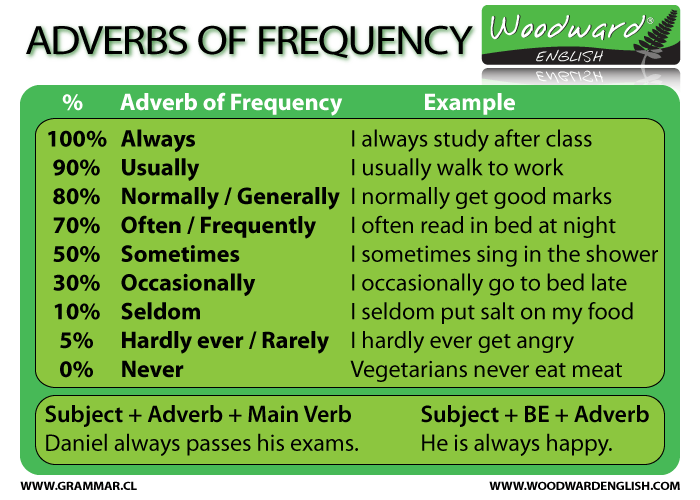MY CECYT ENGLISH CLASS
jueves, 19 de febrero de 2015
COUNTABLE AND UNCOUNTABLE NOUNS
INFORMATION ABOUT COUNTABLE AND UNCOUNTABLE NOUNS
Exercise 1.
Exercise 2.
How much and how many......
Some and Any.
How much and how many.......
GAME Some and any
miércoles, 11 de febrero de 2015
SIMPLE PRESENT VS PRESENT CONTINUOUS
If you need more information related to present continuous go to the following link:
Present continuous.
Let's practice.
Present simple vs present continuous
Present simple vs present continuous 2.
Present contiuous
Games
Game 1
Game 2
SONG
martes, 3 de febrero de 2015
JUST TO PRACTICE!!!
TASK:
Click on "simple present exercise", download the document in your computer and answer it, when you've finished, send it to your personal e-mail and print it at home, do not forget to write your name, date, and group. Write the answers in bold. Everything has to be done in computer. You have to bring this exercise next class.
Be careful with your activity's presentation. And remember that if you were not in the class this activity will not be counted as part of classwork.
SIMPLE PRESENT EXERCISE.
SIMPLE PRESENT GAME
VERB TO BE GAME
WH- QUESTIONS GAME
SONG.
domingo, 25 de enero de 2015
IMPORTANT (Useful tips)
1. Study Alone
Unless you've got a couple of friends who are super-serious about getting down to business, stay away from group study sessions because they tend to get off-topic pretty quickly. Save the social time till after you've handed in your test.2. Create Your Perfect Study Area
The place where you study should be quiet, comfortable and free from distractions. Go to your room, close the door and kill as many distractions as possible - like music, television, and even the internet and your phone. If you don't have your own room that you can sneak away to, consider studying at the library instead.3. Get it All Out
Your study materials, that is. Before you dig in, make sure you
have all your books, notes, study guides and writing utensils in front
of you. Don't give yourself another excuse to get up and rummage
around.
4. Turn Your Notes into Flash Cards
Now that you've got all your notes in front of you, open up a pack of index cards. As you read through the important facts, rewrite them in Q&A form on the cards.5. Snack Healthy While You Study
If you want to stay sharp while you study, stay away from junk food. Instead, snack on studying friendly foods like dark leafy greens, whole grains, peanut butter, milk and seafood. Feeling sluggish? Caffeine or energy drinks won't help you in the long run. Get your energy boost instead by eating a banana or an apple.6. Narrow it Down
If you try to study every single thing your teacher's ever said, you'll go crazy. Instead, focus on the most important topics. If you're not sure what those are, read the study guide (if there is one -blog-), or ask your classmates. Once you've nailed down the important stuff, if there's still time left before the test, you can move onto the finer details.8. Put Yourself to the Test
Once you've got your set of flash cards, test yourself with them. If you don't trust yourself not to cheat, give the cards to your parents and have them test you. Don't stop till you've made it through the whole stack without any mistakes. And be sure to bring your flash cards to school with you on the day of the test: you'll be amazed at how much more you can retain if you run through the cards right before your teacher hands out the test packet.9. Get Some Sleep
You might be tempted to pull an all-nighter, but if you do, you'll only be hurting your chances of getting an A. Get a full 8 hours of sleep so your brain is in good shape on test day.10. Study All Semester Long
It's tempting to hold off on studying till the last minute, especially if you tell yourself that anything you try to memorize earlier on won't really stay in your brain. That's not true. Take some time throughout the semester to review all of your notes and re-read important passages in your text book. It might seem tedious, but it'll really keep all those facts in your brain on test day.FREQUENCY ADVERBS
We use some adverbs to describe how frequently we do an activity.
These are called adverbs of frequency and include:
| Frequency | Adverb of Frequency | Example Sentence |
|---|---|---|
| 100% | always | I always go to bed before 11pm. |
| 90% | usually | I usually have cereal for breakfast. |
| 80% | normally / generally | I normally go to the gym. |
| 70% | often* / frequently | I often surf the internet. |
| 50% | sometimes | I sometimes forget my wife's birthday. |
| 30% | occasionally | I occasionally eat junk food. |
| 10% | seldom | I seldom read the newspaper. |
| 5% | hardly ever / rarely | I hardly ever drink alcohol. |
| 0% | never | I never swim in the sea. |
The Position of the Adverb in a Sentence
An adverb of frequency goes before a main verb (except with To Be).| I always remember to do my homework. |
| He normally gets good marks in exams. |
An adverb of frequency goes after the verb To Be.
| Subject + to be + adverb |
|---|
| They are never pleased to see me. |
| She isn't usually bad tempered. |
When we use an auxiliary verb (have, will, must, might, could, would, can, etc.), the adverb is placed between the auxiliary and the main verb. This is also true for to be.
| Subject + auxiliary + adverb + main verb |
|---|
| She can sometimes beat me in a race. |
| I would hardly ever be unkind to someone. |
| They might never see each other again. |
| They could occasionally be heard laughing. |
We can also use the following adverbs at the start of a sentence:
Usually, normally, often, frequently, sometimes, occasionally
- Occasionally, I like to eat Thai food.
Always, seldom, rarely, hardly, ever, never.
We use hardly ever and never with positive, not negative verbs:
- She hardly ever comes to my parties.
- They never say 'thank you'.
- Have you ever been to New Zealand?
- I haven't ever been to Switzerland. (The same as 'I have never been Switzerland').
- every day - once a month - twice a year - four times a day - every other week

lunes, 19 de enero de 2015
PREPOSITIONS OF TIME AND PLACE
What is a preposition?
A preposition describes a relationship between other words in a sentence.
In itself, a word like "in" or "after" is rather meaningless and hard to define in mere words.
For instance, when you do try to define a preposition like "in" or "between" or "on," you invariably use your hands to show how something is situated in relationship to something else. Prepositions are nearly always combined with other words in structures called prepositional phrases.
If you want to know more about prepositions, try the following link.
Click here: Prepositions
Before doing the exercises try this video it is very useful.
PREPOSITIONS OF TIME EXERCISE 1.
PREPOSITIONS OF TIME. EXERCISE 2.
PREPOSITIONS OF TIME. EXERCISE 3.
PREPOSITIONS OF TIME. EXERCISE 4.
PREPOSITIONS OF TIME. EXERCISE 5. (Try this one, it is very useful)
PREPOSITIONS OF PLACE
PREPOSITIONS OF PLACE. EXERCISE 1
PREPOSITIONS OF PLACE. EXERCISE 2.
PREPOSITIONS OF PLACE. GAMES.
SIMPLE PRESENT.
domingo, 18 de enero de 2015
SPEAKING RUBRIC (Family tree)
Here you will find the speaking rubric that you have to print and bring on Monday 19/01/2015.
You have to bring it all your classes up to you have your speaking assessment. Remember that the day of your exam will be at random so you have to be prepared since Monday.
SPEAKING RUBRIC
Suscribirse a:
Entradas (Atom)













